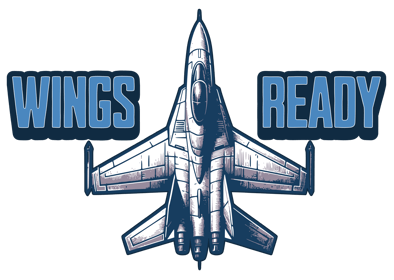Education Housing Support for the U.S. Air Force: What Airmen Need to Know
This article provides a comprehensive overview of education-related housing support available to U.S. Air Force members. It explains how Basic Allowance for Housing (BAH) helps offset housing costs during education or training assignments, including special policies for unaccompanied tours and PCS moves. The article also covers the Post-9/11 GI Bill’s Monthly Housing Allowance (MHA), detailing eligibility, calculation based on school location, and how it supports full-time students. Additional programs such as Overseas Housing Allowance (OHA), Family Separation Allowance (FSA), and recent dual housing stipend policies are highlighted to help Airmen manage housing expenses while pursuing educational goals. Practical tips and resources for navigating these benefits ensure Airmen can maximize support and minimize financial stress during their educational journeys.
HOUSINGEDUCATIONFINANCEENTITLEMENTS
Coleman Marlatt
4/27/20253 min read


Education Housing Support for the U.S. Air Force: What Airmen Need to Know
Balancing educational advancement with the realities of military life can be challenging for Air Force members, especially when it comes to housing. Whether you’re pursuing a degree, attending professional military education, or training away from your home station, understanding your housing support options is essential. The Air Force and Department of Veterans Affairs (VA) offer a range of financial tools and allowances to help Airmen and their families manage housing costs while furthering their education.
Basic Allowance for Housing (BAH) and Education
The Basic Allowance for Housing (BAH) is the cornerstone of housing support for Airmen. BAH provides a tax-free monthly stipend to help offset the cost of renting a home or apartment when government quarters are not available. The amount you receive depends on your pay grade, location, and whether you have dependents. BAH rates are updated annually and reflect local rental market data, including the cost of utilities. Airmen on active duty, including those in the Air Force Reserve, are eligible for BAH.
When Airmen are required to live separately from their families-such as during unaccompanied tours, training, or education assignments-special BAH rules may apply. For instance, if you attend a professional military education program or other training away from your family for less than a year and have orders to return to your previous base, you may qualify for an additional daily stipend based on your BAH rate without dependents. This new policy helps cover the cost of maintaining two households and is paid on top of your regular housing allowance, provided you do not live in free government housing like dormitories.
Post-9/11 GI Bill Monthly Housing Allowance (MHA)
If you are using the Post-9/11 GI Bill to pursue higher education, you may be eligible for a Monthly Housing Allowance (MHA). The MHA is modeled after the BAH for an E-5 with dependents and is based on the zip code of your school or training location. The exact amount depends on your eligibility tier (how long you served), your rate of pursuit (full-time or part-time student), and whether your courses are in-person or online. To receive the full MHA, you must be enrolled more than half-time and physically attend most of your classes. Online-only students receive a reduced allowance.
For those in on-the-job training or apprenticeships, the MHA starts at 100% of the BAH rate for the first six months and gradually decreases as you progress through your program. The GI Bill also provides up to $1,000 per year for books and supplies, further easing the financial burden of education.
Additional Housing Support Programs
Beyond BAH and the GI Bill, the Air Force and VA offer several other housing assistance programs:
Overseas Housing Allowance (OHA): For Airmen stationed outside the U.S., OHA helps cover the cost of renting off-base housing abroad.
Family Separation Allowance (FSA): Provides additional funds when a service member is separated from their family for more than 30 days due to official duty.
Move-In Housing Allowance (MIHA): Assists with initial move-in expenses for members assigned to overseas locations.
VA Housing Assistance: Includes home loan programs, grants for disabled veterans, and supportive housing for homeless veterans and their families.
New Policy: Dual Housing Allowance for Education Assignments
A recent policy allows Airmen and Guardians who temporarily relocate for education or training (such as Air Command and Staff College) to receive an additional housing stipend. This benefit is available if you are away for less than a year, have orders to return to your original station, and are not living in government-provided housing. The extra allowance is designed to relieve the financial strain of paying for two homes during critical career-advancing assignments.
Practical Tips for Airmen
Check your eligibility for additional housing stipends before attending school or training away from your family.
Use the Defense Travel Management Office’s BAH calculator to estimate your housing allowance based on your location and status.
If you are using the GI Bill, be mindful of your enrollment status and course delivery method, as these impact your MHA.
Consult your base Finance Office or Education Office for personalized guidance on housing benefits and policy updates.
Conclusion
Education housing support for Air Force members is robust and evolving, with new policies designed to address the unique challenges of balancing service, family, and education. By understanding and leveraging these benefits, Airmen can pursue their academic goals without undue financial stress, ensuring both personal and professional growth remain within reach. For the latest information and assistance, always consult your base resources or the official Air Force and VA websites.
Empower
Supporting airmen with vital military life resources.
Thrive
Navigate
Wings Ready info
© 2025. All rights reserved.
Built by Airmen, for Airmen.
